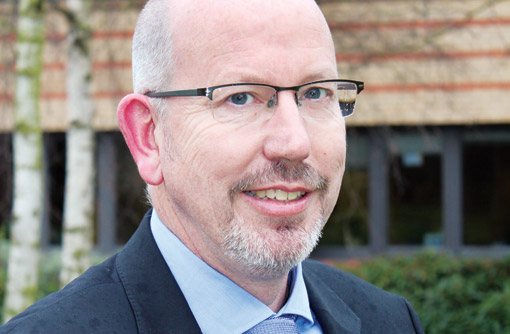Prof Benton hails the century of the chicken at EPIC

Meeting the demand for feeding the world is something Professor Tim Benton has spent a lifetime studying. Jake Davies met with him ahead of his presentation at this year’s EPIC conference
This will be the century of the chicken, according to Prof Tim Benton, UK champion for global food security. As the demand for protein grows, and resources are strained, the meat that can be produced most efficiently will come out on top.
There is a caveat to that though. Poultry production will need to become more efficient, and, unless there is a big shift in the way resources are managed, any type of meat will become scarce.
Although poultry production is efficient and intensive, he says that there is an unacceptable level of wasted product, pointing to better ways to use manure, by drying or burning it for energy, as well as using by-products such as meat and bonemeal. “Considering all the inputs required to grow a chicken, to waste any part of it doesn’t make sense.”
Prof Benton believes regulatory burdens, in place as precautionary measures, need to be overcome to let us re-use waste more. “You can bet your bottom dollar that if no soya was available tomorrow we would find ways of filling the holes and utilising waste.”
He stresses that the UK poultry industry operates in a global marketplace, and is subject to the influences and demands of other countries, which are increasing as their population grows, and as they become wealthier.
Meat as a treat
Prof Benton says we’ve always been able to “sidestep” real constraints on food through innovation, but the planet has a finite resource base, the weather is getting more variable and population growth may be reaching its absolute capacity.
“A baby born today is expected to live until 100 years of age,” says Prof Benton. “How can we leave the countryside equally capable to produce the sort of food we eat now? That is a very big question.”
He says that in the coming decades, we will not be able to eat meat as frequently as we do today. Prof Benton believes that the carbon cost will eventually be incorporated into the price of meat, and that will make it less affordable, “Meat as a treat, once or twice a week.”
Genetic engineering
On GM he says that there’s real potential for reducing the environmental burden that growing crops places on land with GM, as well as an opportunity to improve yields in unsuitable soil – but with any mutation, even natural, there are risks to health or the environment.
“I think we need to be much more savvy about really researching the risks, but also balancing them against that potential,” says Prof Benton.
He sees GM and genetic engineering as a way to speed up selective breeding, but not inherently different from classic selection processes that have developed over the last 50 years.
“If you look at the difference in livestock between now and the 1950s, the genetic variation that has given rise to a whole range of different problems, like shape, growth rates – but it has changed yields enormously,” says Prof Benton.
Farming practice has also intensified over that time and the perception that indoor-bred animals live in lower welfare environments isn’t necessarily fair.
“Industry pushes out a ‘food is natural’ message, but there’s very little about modern agriculture that’s natural, and farming environments are not a natural ecosystem.”
He says that some indoor systems can even be better for health, pointing to foot problems that livestock can develop from the wet, adding that humans increasingly live in “intensive” indoor environments – “but we’re not complaining about our welfare”.
EPIC Conference
Prof Tim Benton will join other high-profile speakers at this year’s EPIC conference, held from 3-4 November at the Forest of Arden hotel, near Birmingham.
The 47th conference will kick off on the Sunday evening with a pre-dinner welcome and cocktail party. Following this, the White Meat Supper is an informal dinner with light entertainment.
The conference proper opens at 9am on the Monday. Kelly Bronze Turkey’s Paul Kelly is this year’s chair, and the speakers include Andrew Joret, chairman of the British Egg Industry Council; Derek Lawler, commercial director at Tesco, and representatives from retail data provider Kantar Worldpanel and Rabobank.
In the afternoon, Kate Barger from Cobb and Prof David Hughes, food and drink industry expert, will feature. Both the speakers in the morning and the afternoon will face delagates’ questions on a panel at the end of each session.
Monday evening will feature the formal Egg and Poultry industry banquet, where the Poultry Person of the Year will be announced, as well as the EPIC Young Poultry Person of the Year Award for someone who has made a significant contribution to the industry.
For more information, call 01480 217 318 email info@epiconference.co.uk or visit visit www.epiconference.co.uk
